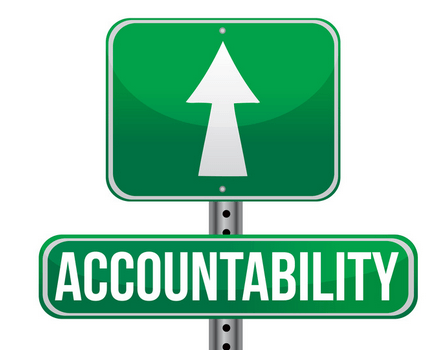Citizens can demand accountability about financial administration from MMDAs – Dr. Osae
 The media and any concerned citizen in any locality have the right to demand accountability about the financial administration of the Metropolitan, Municipal and District Assemblies (MMDAs) in the country.
The media and any concerned citizen in any locality have the right to demand accountability about the financial administration of the Metropolitan, Municipal and District Assemblies (MMDAs) in the country.
The MMDAs are also obliged to respond accordingly and if they failed to do so, a citizen could petition the Commission of Human Rights and Administrative Justice (CHRAJ) or the Public Relations and Complains Committee (PRCC) of the Assemblies.
Dr. Eric Oduro Osae, Dean, Studies and Research of the Institute of Local Government Studies disclosed to the Ghana News Agency (GNA) on the sideline of a one-day orientation programme for Audit Committee members of the Municipal and District Assemblies (MDAs) in the Brong-Ahafo Region on Monday at Abesim, near Sunyani.
The programme, organised by the Centre for Local Governance Advocacy (CLGA) and Internal Audit Agency (IAA) with funding from the Inter-Ministerial Coordinating Committee (IMCC) was attended by 135 Accountants and Auditors, five each from the 27 MDAs in the Region.
It was the fourth in the series of a nationwide exercise after the Western, Volta and Central Regions for all members of the Audit Committees and it is intended to expose them to the operations of the MMDAS and the new requirements of the Public Financial Management (PFM) Act 2016, Act 921.
Dr. Osae explained that Section 35 of the Local Governance Act 936, Act 2016 required that any person dissatisfied with an Assembly or the Administrator of the District Assembly Common Fund (DACF) could petition CHRAJ for redress.
The Section 43 of the same Act, he added also gives citizens the authority to petition the appropriate authority if they were not involved in the management of the Assemblies whilst Section 47 again gives citizens access to information from the MMDAs.
Dr. Osae therefore emphasised that the MMDAs could not refuse to release financial figures for publication by the media.
He said it was the right and duty of the citizenry to promote efficient management and transparency in the financial administration of local government, emphasising that all Ghanaians could demand that from the leadership of the assemblies.
Dr Osae implied that the Metropolitan, Municipal and District Chief Executives (MMDCEs), the Finance Officers, Presiding Members and even the Assembly Members (AMs) must be translucent to the media and the general public about the Assemblies’ financial administration.
This is because when the AMs go back to their electoral areas they should report to the people about that and other developments pertaining to their general well-being, he added.
Hence “it is not for nothing that President Nana Addo Dankwa Akufo-Addo has institutionalised a District level Meet the Press, where MMDCEs are expected to meet the media and the general public to give them report on revenue performance, development issues and other areas that are relevant to the overall progress of the assemblies and the nation as well,” Dr. Osae stressed.
He continued that the law even required all MMDAs to publicly display up to date financial report of their internally-generated funds mobilised and how they have been expended on the assemblies’ notice boards and other conspicuous areas to promote good financial governance and accountability.
Madam Gladys Gillian Naadu Tetteh, the Deputy Executive Director of CLGA, earlier emphasised that with professional accountants now serving on the Audit Committees, they were expected to ensure efficient financial management at the MMDAs to reduce irregularities being recorded annually in the Auditor-General’s report to Parliament.
Mad. Tetteh said Ghanaians would like to hear fewer infractions recorded in the reports to the Public Accounts Committee to Parliament.
Mr. Ransford Agyei, the acting Director-General of the IAA who partnered Dr. Osae as resource persons, told the participants that the roles of the Audit Committees could be categorized into three areas-Mandatory, Advisory and Support to the Internal Auditing, Monitoring and External Auditing or Scrutiny.
Source: GNA
